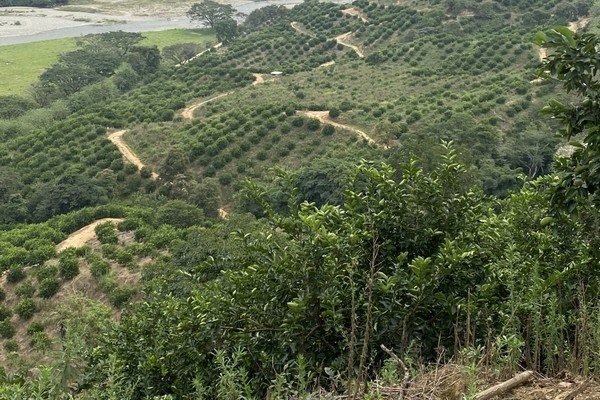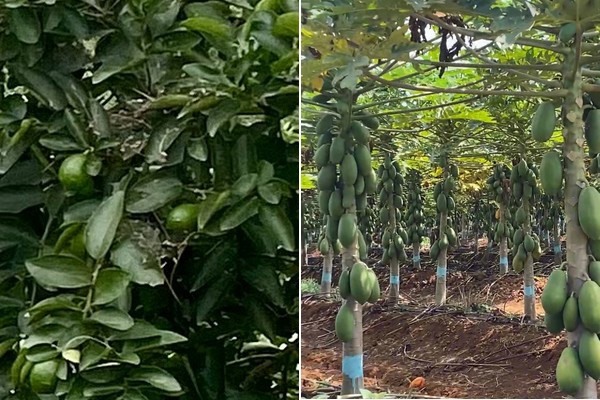At a time when numerous countries around the world are being tariffed on products coming into the U.S., one shipper is doubling down on its belief in sourcing from South America. “Weather issues have been pushing increasing diversification of growing regions. It’s hard to just source from one region,” says Brett Burdsal, the director of business development with WYCO Produce. “It’s not what it used to be. It seems every region has weather issues, port issues, strike issues, etc. This is leaving retailers asking, “Hey, is there another place we can source this from?”

A look at one of WYCO’s farms in Colombia.
For WYCO, that means sourcing items such as limes, avocados, and plantains from countries such as Colombia, Guatemala, and Honduras. In December, it added the Dulzita variety to its year-round Guatemalan papaya program, and just last week, it received its first shipments of pineapples from Panama. “We’re very excited to include this in our program–the Brix are there as is the color and the infrastructure to do it so it’s a safety valve/alternative for Costa Rican supply,” says Burdsal.
Up-and-coming countries
These sourcing countries are developing and continuing to grow their supply of a variety of items. “They’re still very young countries in what they’re doing. I’ve heard it described that Colombia is what Mexico was 30 years ago. There’s such potential, and it’s growing every year,” he says. “We are working with smaller growers who are very good farmers and are also heavily focused on sustainability both for the land and the growers, food safety, and new varieties. A lot of our grower partners are selling to Asia and Europe but have yet to crack the U.S. market. A lot of what they grow is already going to Europe and Asia but not to the U.S. So we’re looking into what they can do and if it works in our market.”
However, this market now comes with tariffs on imported products from numerous countries, a fact that the company is very much aware of. “They will affect produce as much directly as they will indirectly. The tariffs will be felt more so on items such as cars, clothing, building materials etc., and that will trickle down to people’s food budget,” says Burdsal.

Left: limes from Colombia; right: papaya from Guatemala
Even so, its belief in these younger growing regions remains firm. “We’re not sure what the tariffs and more will mean for the U.S. economy,” he says. “However, we do believe very strongly in these regions and their potential. We also think demand for the items from these regions will grow as retailers and wholesale partners look to diversify their sourcing locations.”
 For more information:
For more information:
Brett Burdsal
WYCO Produce
[email protected]
https://wycoproduce.com/
Source: The Plantations International Agroforestry Group of Companies
